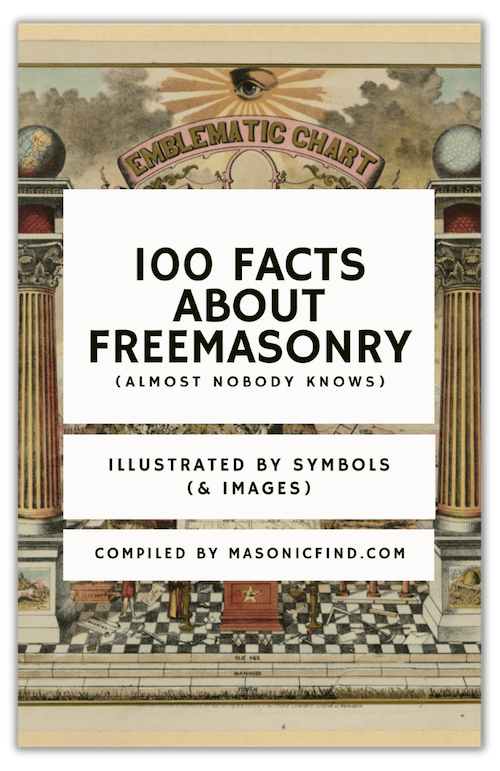Some people believe that becoming a Freemason will help to further their career, whether because of their views that Freemasonry is principally for networking, that it is a form of nepotism, etc.
But does being a Freemason help your career? Are such views accurate?
From what I have seen, no. In fact, such phenomena have nothing to do with the purposes of Freemasonry; if one joins Freemasonry for such purposes, then he is joining for the wrong reasons.

Mercenary Motives
As I have written about and focused upon in another article that I contributed to MasonicFind, mercenary motives disqualify a petitioner from being elected a Candidate to receive the degrees of Masonry.
These can be broadly defined as reasons having to do with material gain, given that the purpose of Freemasonry is to promote moral self-improvement, personal integrity, and service to the community.
Not a Money-Making Machine
I recently saw a humorous, question-and-answer meme that said something along the lines of the following:
“How do you become a millionaire in Masonry? Start out as a multi-millionaire.”
Because of degree fees (one time each) and annual dues, one will spend more money for Masonry than he will make from Masonry; this becomes especially true if he must travel wide distances for any larger obligations that he has taken upon himself (for example, as a Grand Lodge officer he may need to travel to other Lodges throughout the Grand Lodge’s geographical jurisdiction; he may even need to travel to another Grand Lodge’s jurisdiction as a representative of his own).
There may be a handful of opportunities to make money in Masonry; but they will be modest and, in my opinion, should only be principally reserved for Masonic participation/charity, for medical bills, and for emergencies.
Helping Out a Brother in Need
There may be instances in which someone already a Mason loses his job or otherwise encounters hard financial times. If knowledge of this comes to members of his Lodge, they may help him get back on his feet by helping him find a job, even if it is a temporary one.
Shortly after I became a Master Mason, I personally lost my own job and had difficulty finding another. A fellow Mason (who was the Worshipful Master of my Lodge at the time) got me a job selling air purifiers.
This job helped to pay the bills for a small while, but I quickly found out that sales is not for everyone, no matter how great the product is.
Another Mason (who had gone through the degrees at about the same time as I had) offered me and my wife jobs in his cleaning company (which, at the time, only consisted of him and his wife).
We happily accepted, and some big commercial projects helped get us through a few months before we packed up and moved away for a time for cheaper living.
Did either of these help to further my career?
Not at all. However, these did help to pay the bills and to put food on our table.
These experiences should not be expected in Masonry; after all, we are not a benefit or insurance society.
However, we do our best to take care of each other if and when the time comes; and, because of the principles of Masonry, such considerations are had for everyone whom we know, not just fellow Masons.
I should note also, however, that the Lodge was not the first place that I looked for employment; in fact, I did not look there at all. I was looking elsewhere and a couple of Brothers happened to hear about my situation, which resulted in them offering me assistance.
As I have written elsewhere for MasonicFind, there is a monumental difference between:
1) joining a group for networking or employment opportunities, and
2) already being a part of a group where someone happens to be capable and willing to help you out of a financially tough spot.
Side-effects of Membership

Confidentiality
Because we Masons take upon ourselves obligations not to disclose certain things about the Craft, we are well-acquainted with the concept of confidentiality.
This may be of benefit to someone who is going into a career that requires that some information be kept confidential (i.e., doctor-patient confidentiality, attorney-client privilege, clergy-penitent privilege, undercover work for the military, law enforcement, etc.).
Leadership Experience
If you serve in a leadership role in Masonry, you may learn some skills that can translate to your career (i.e., organization, delegation, the ins and outs of how to legally form such an organization, etc.).
However, these will likely be the same skills that can be learned in any other group or organization, including youth groups (like Scouts), ecclesiastical service, clubs, etc.
Political Damage
Because of the stigma (based on the Taxil Hoax and other false premises) around Masonry as well as the nature of the political machine to make mountains out of molehills, membership in Masonry will likely hurt and not help an individual’s political ambitions, particularly in elected positions above the local level.
If the office sought is local and/or if the office is appointed, then (from what little that I can tell) one’s membership as a Mason generally is not likely to have any effect (whether good or bad) on one’s service in that public role; that stated, this is likely because political mudslinging does not often occur at the local level.

FREE DOWNLOAD: 100 FACTS ABOUT FREEMASONRY (ALMOST NOBODY KNOWS)
Join the 10,000+ Brethren from around the world inside our weekly Masonic newsletter and get our best selling ebook for free (usual value: $20).
Conclusion
If you are joining Freemasonry in order to further your career, then you are joining for the wrong reasons.
In fact, the petition that you fill out and sign in order to join likely has stated on it that you are not joining for such reasons; it would be dishonest to sign such a document with such purposes in your heart.
If you do end up joining for these reasons, then you will be severely disappointed.
It would be far better to join a group designed specifically for such purposes, such as Business Network International for networking or the unemployment office for assistance in searching for employment.
This article was written for MasonicFind.com by WM-Elect Brandon Cole.